If the tone of President Trump’s inaugural address—solemn and religious, almost devoid of the first person singular and without a hint of improvisation—was unfamiliar, its content was not. Mr. Trump reiterated the populist themes that had brought him to the highest office in the land: corporations and government elites had enriched themselves at the expense of the people. Politicians prospered while families struggled. The wealth of the middle class had been redistributed all around the world.
But “the forgotten men and women of this country,” he promised, “would be forgotten no longer.” He would return power from Washington, D.C., and give it back to the people. “What truly matters is not which party controls our government, but whether our government is controlled by the people,” the president went on to say.
Mr. Trump denounced both footloose policies that moved American jobs overseas while making other countries rich and wars that squandered trillions of dollars while America’s infrastructure and society crumbled. One pole-star would guide his presidency: “America First.” The president explained “We will follow two simple rules: buy American and hire American.” And it means ”we do not seek to impose our way of life on anyone” as the president referred to his policies toward other countries. The failed era of nation-building was over. The power of our example would suffice.
This does not mean that the United States would withdraw from the world. Mr. Trump promised to “reinforce old alliances and form new ones and unite the civilized world against radical Islamic terrorism.”
The newly inaugurated president identified himself with the core desires of average families: “safe neighborhoods, great schools, and good jobs.” He deplored violence and social disorder, declaring “this American carnage stops right here and stops right now.” President Trump said he “will bring back our borders and…our wealth.”
Like many incoming presidents before him, Mr. Trump stressed the ideal of national unity. But he did not speak of overcoming partisan or ideological divides. Instead, he invoked patriotism as the antidote to prejudice, and military devotion as a model for civil society. He invoked “that old wisdom our soldiers never forget: that whether we are black or brown or white, we all bleed the same red blood of patriots.” And so should we.
The new president cast himself as a man of action: ”the time for empty talk is over.” And he portrayed himself as a representative of the people. “This moment is your moment,” he said, “it belongs to you.” The new president went on to say, “The oath of office I take today is an oath of allegiance to all Americans [and]… you will never be ignored again.”
The conclusion of Mr. Trump’s speech could have surprised no one. He ended his oration where he began his campaign, with his signature pledge to “Make America Great Again.” It remains to be seen whether his singular and single-minded vision—America First—can redeem this pledge. But Americans and the world are on notice that he is dead serious about it, and that he intends to act boldly to bring it about. Everyone must hope that the intensity of his commitment remains compatible with the constitutional institutions and norms that even the most populist president always must respect.
The Brookings Institution is committed to quality, independence, and impact.
We are supported by a diverse array of funders. In line with our values and policies, each Brookings publication represents the sole views of its author(s).

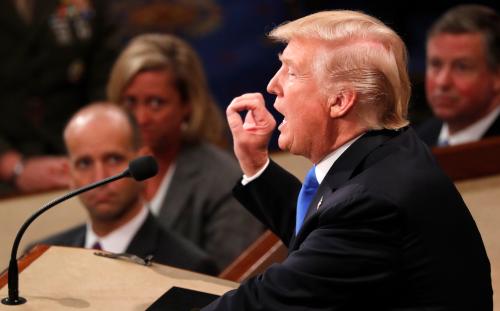
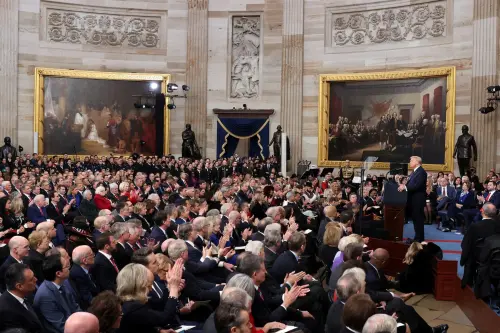
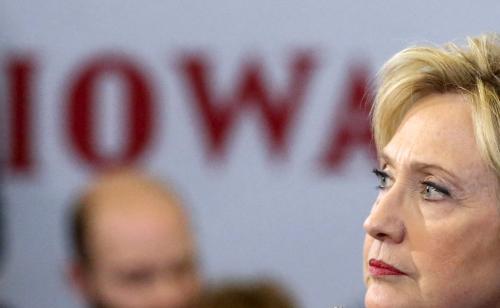
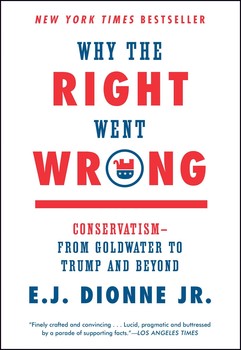
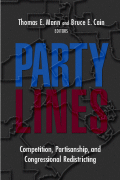
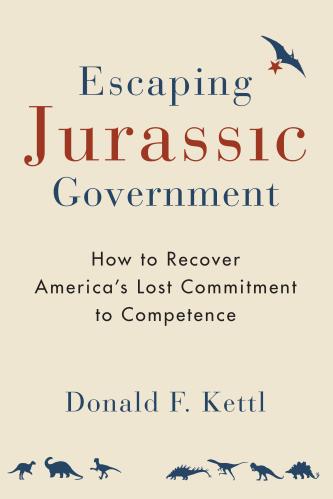



Commentary
Trump’s campaign stump speech becomes his inaugural address
January 20, 2017